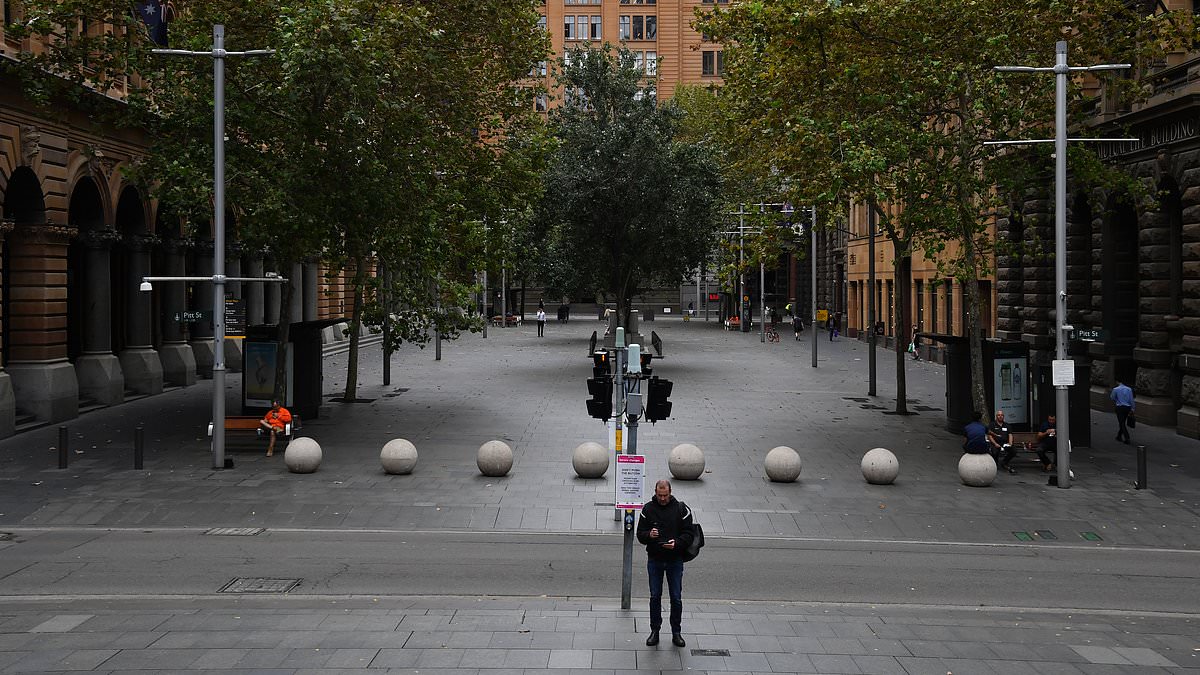All government employees in New South Wales have been given just one day’s notice that work from home is coming to an end.
However, staff were left confused by Premier Chris Minns’ shock announcement on Monday with several obvious hurdles already emerging.
All NSW public servants will be required to return to their offices on Tuesday but some live several hours and even interstate from their place of employment.
Others pointed out that some offices can’t physically accommodate all employees working onsite at any one time.
‘There is a guy in my department who lives in Noosa. He works remotely all week. I am looking forward to his return to the office tomorrow,’ one senior government worker told Daily Mail .
‘Another lives in Sydney and I’ve never seen her – can’t wait to meet her.’
A second anonymous government worker highlighted a lack of physical workspaces available to fit all employees currently WFH.
‘Although there should be a requirement to go to the office more, two or three days a week, our offices can’t manage the capacity of this amount of people coming in,’ she told Daily Mail .
‘We have to book desks two weeks in advance at the moment because Tuesdays are so busy – and we can’t really dictate if teams should go in another day as this is dependent on work flexibility and family.’
Some employees were promised a ‘hybrid’ workplace when they applied for their positions.
‘Our jobs were advertised as hybrid roles and we promote a hybrid workplace to help with flexibility and managing work life balance,’ the staff member added.
‘Going back into the office five days a week is unachievable for those who live two hours from the office.
‘What should be done is giving this directive to more of the senior leadership who I barely see in the office.
‘They should be leading by example.’
South of the border, Premier Jacinta Allan’s government had some choice words about NSW’s new policy, despite both being Labor-run.
The Victorian government have vowed to keep its current flexible working arrangements, which require employees to be in-office three days a week.
‘We know that flexibility in the workplace helps more women stay in work and more women in the workforce is better for everyone,’ a spokesman told The n.
‘Any public servants from NSW who like flexibility in their workplace should consider moving to Victoria.’
The Queensland government also confirmed it will not change its current WFH policy, which is at the discretion of each department.
Public Service Association general secretary Stewart Little confirmed the union would help members affected by the government’s new rule.
‘While acknowledging many of our members do not have the option to work from home, the PSA has always fought for flexible working arrangements,’ the union said in a statement.
‘This includes, where possible, working from home for those whose roles do not rely on them attending a specific site.
‘The PSA also understands that some worksites cannot physically accommodate all employees working onsite at any one time.
‘Any PSA member with issues regarding flexible working arrangements, including working from home, will receive support from their union.’
But Business Sydney Executive director of Paul Nicolaou welcomed the move.
‘This is fantastic news and great leadership by the Premier,’ he said.
‘Employers are telling Business Sydney we have to get really serious about getting the CBD back to its pre-Covid footing.
‘The city needs more foot traffic hence more workers back to the city to support the hundreds of businesses and enterprises that depend on them.’
The end of working from home was announced in a government-wide memorandum to all departments on Monday.
The new rules from the premier’s department dictate that public servants will now be expected to work from approved office spaces every day of the working week.
Limited flexibility will still be permitted in cases of job-share arrangements or compressed hours, but most workers will return to the office full-time.
The memorandum warned that existing work-from-home arrangements, which were introduced in 2019, ‘should not be taken for granted or considered unlimited’.
‘The more our experience of work is shared, the more united we become. This means being physically present in our organisations,’ it continued.
Public servants who wish to work from home will now have to provide reasons why their hybrid arrangements are needed, which will then require formal approval, which will be reviewed regularly.
Public servants who want to work outside of the state will also need approval from the head of their department.
